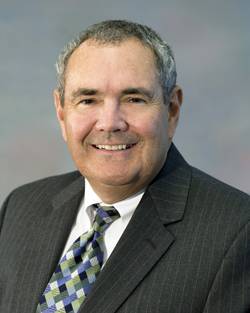Waterways Council, Inc. Endorses River Act of 2013
In a special meeting called to consider this proposal, the Executive Committee of Waterways Council, Inc. unanimously voted to support The Reinvesting in Vital Economic Rivers and Waterways (RIVER) Act of 2013, has announced by its sponsor, Senator Bob Casey (D-PA).
The plan, introduced in Pittsburgh -- where some of the most aged locks and dams reside -- would establish a sustainable, cost-effective way to ensure that the inland and intra-coastal waterways of the United States remain economically viable. This bill would modernize America’s inland waterways system, create jobs, relieve traffic congestion, and optimize American competitiveness through the most low-cost, energy-efficient transportation mode.
The River Act of 2013, based upon the elements contained in the Inland Waterways Capital Development Plan, would:
• Prioritize the completion of navigation projects across the entire waterways system;
• Improve the Corps of Engineers’ project management and processes to better deliver projects on time and on budget, in order to realize $8 billion in job creation;
• Reform project cost allocations;
• Recommend an affordable – and increased -- user fee funding mechanism to meet the system’s needs, and,
• Realize a sustainable annual appropriation of $380 million, of which a significant portion is paid for by commercial users of the system.
The River Act of 2013 represents a new approach to meet the long-standing, recognized need for efficient delivery and timely completion of critical navigation projects and sustainable funding for the Inland Waterways Trust Fund. The nation’s transportation system and taxpayers would benefit from the completion of essential navigation infrastructure and the containment of cost overruns.
The proposal would:
- Preserve the existing 50% industry/50% federal cost-sharing formula for new lock construction and major lock rehabilitation projects.
- Include a cost-share cap on lock construction projects to incentivize keeping projects on budget and prevent shippers from bearing the burden of paying for unreasonable cost overruns. This will strengthen the ability of the Inland Waterways Trust Fund to fund more priority projects in the pipeline.
- Increase by 45% (9 cents per gallon) the existing fuel tax of 20-cents-per-gallon that is paid by the barge and towing industry, the only users of the system who currently are taxed. At the same time, the recommended reforms to the Corps of Engineers’ project management and delivery process would ensure that these additional resources are spent wisely.
“We applaud Senator Casey’s effort in devising the River Act that will modernize our critically important inland navigation system and its infrastructure. Modern waterways are critical to U.S. competitiveness in the world market, to environmental protection, to energy efficiency, to highway congestion relief and to the sustainment of well-paying American jobs. They benefit the U.S. agricultural sector, our construction industry, our energy sector, our environment, our economy, and all the beneficiaries of the waterways system,” said WCI President/CEO Michael J. Toohey.
Waterways Council, Inc. is the national public policy organization advocating a modern and well-maintained national system of ports and inland waterways. The group is supported by waterways carriers, shippers, port authorities, shipping associations and waterways advocacy groups from all regions of the country.












